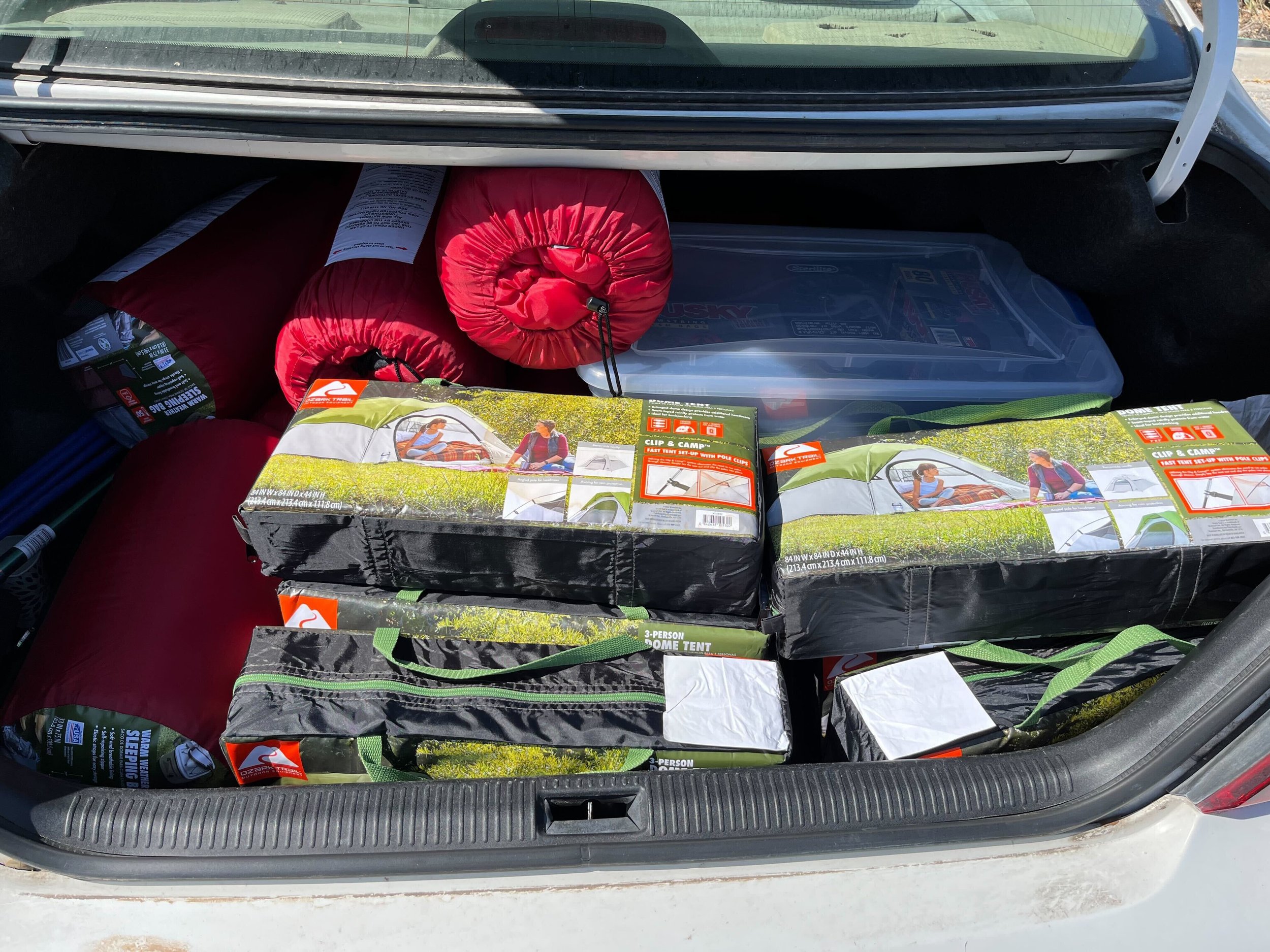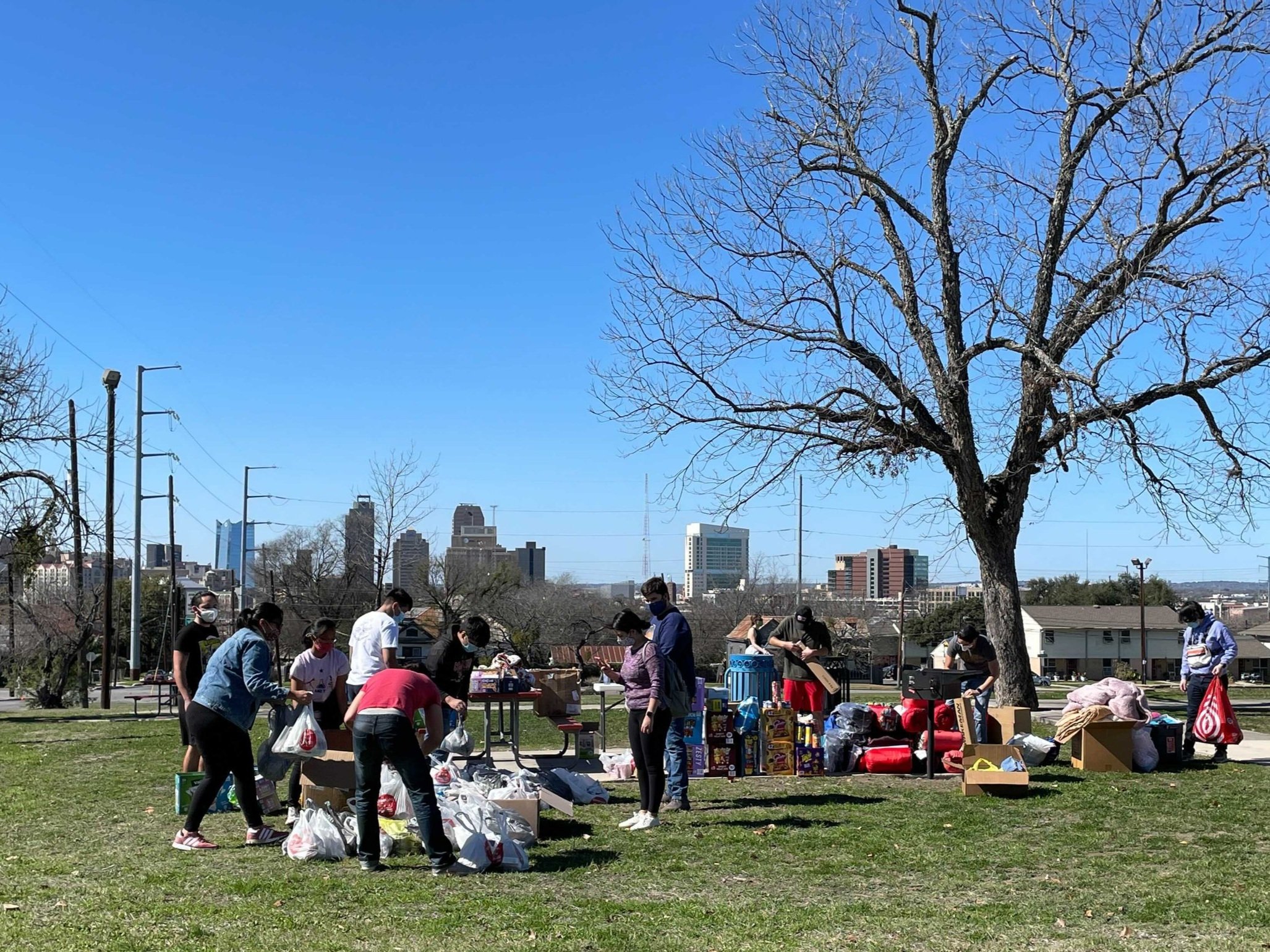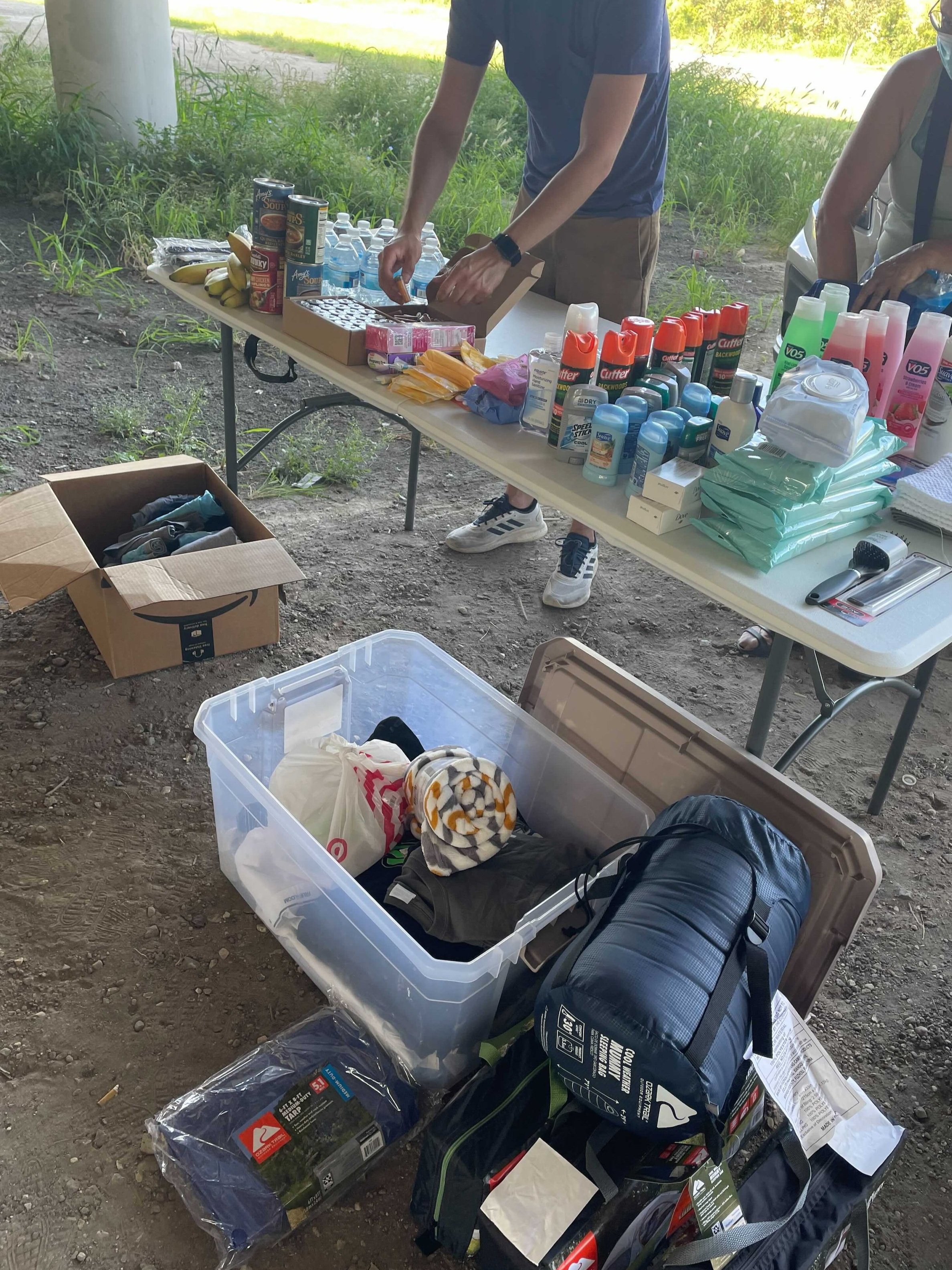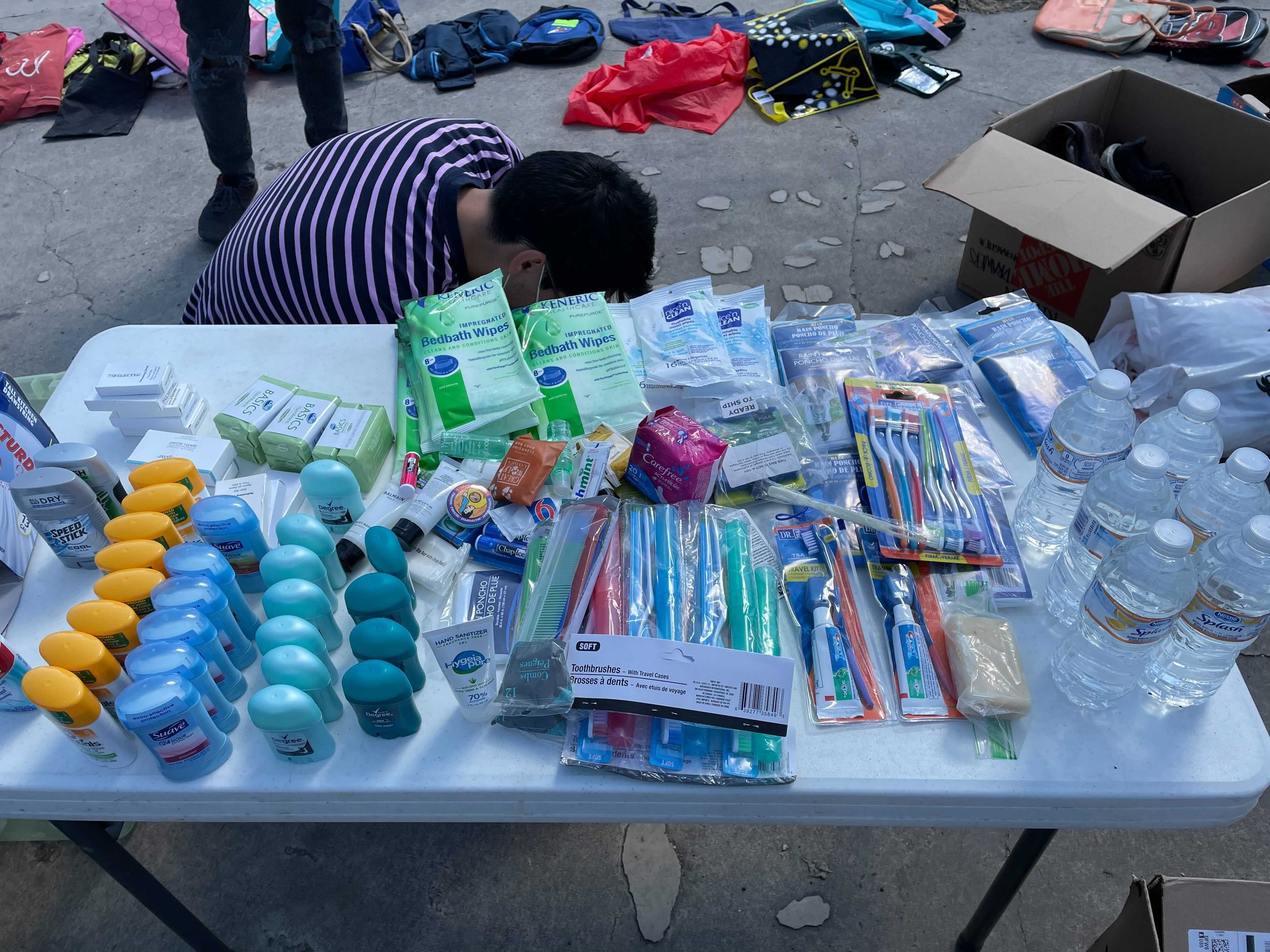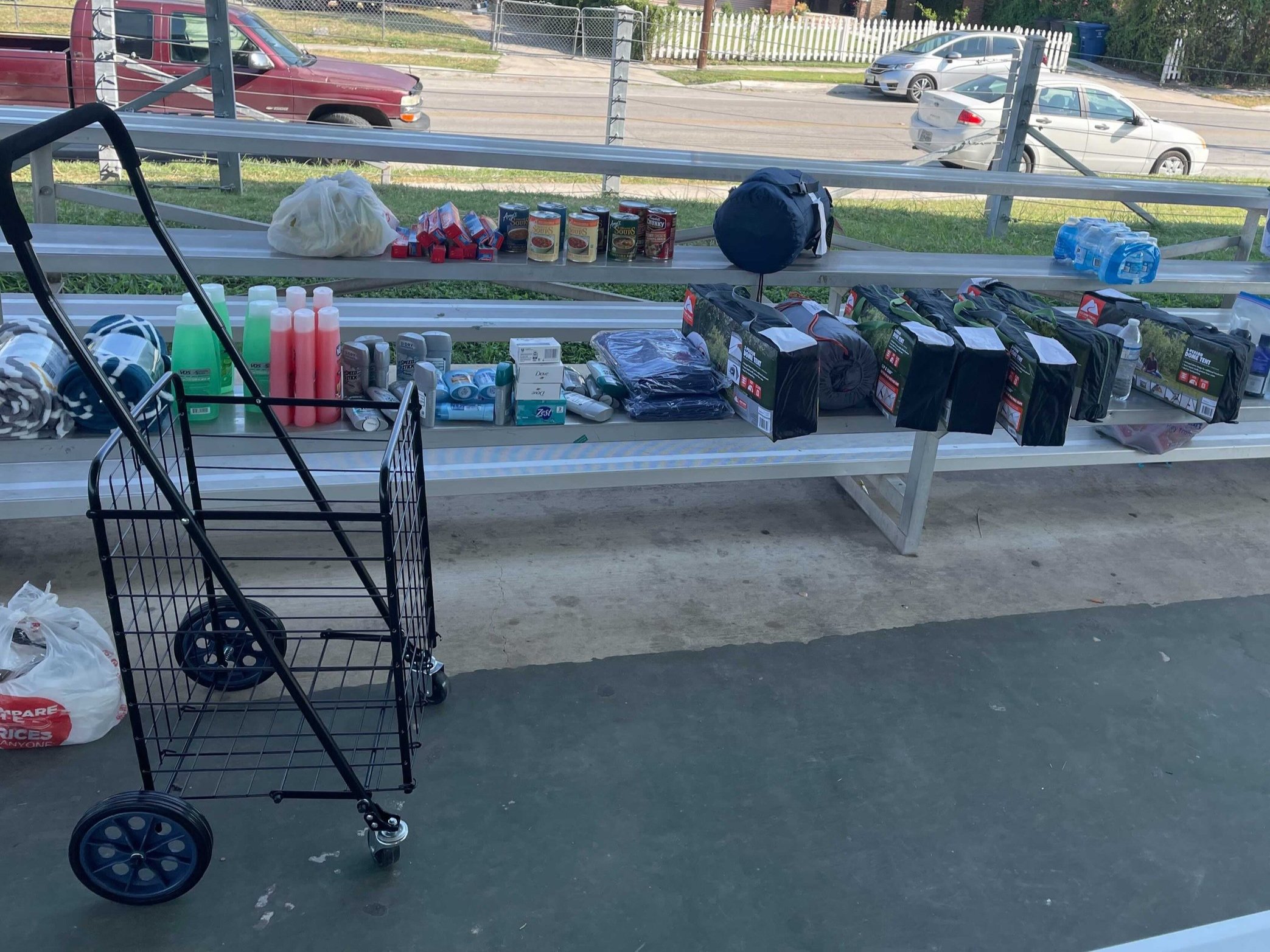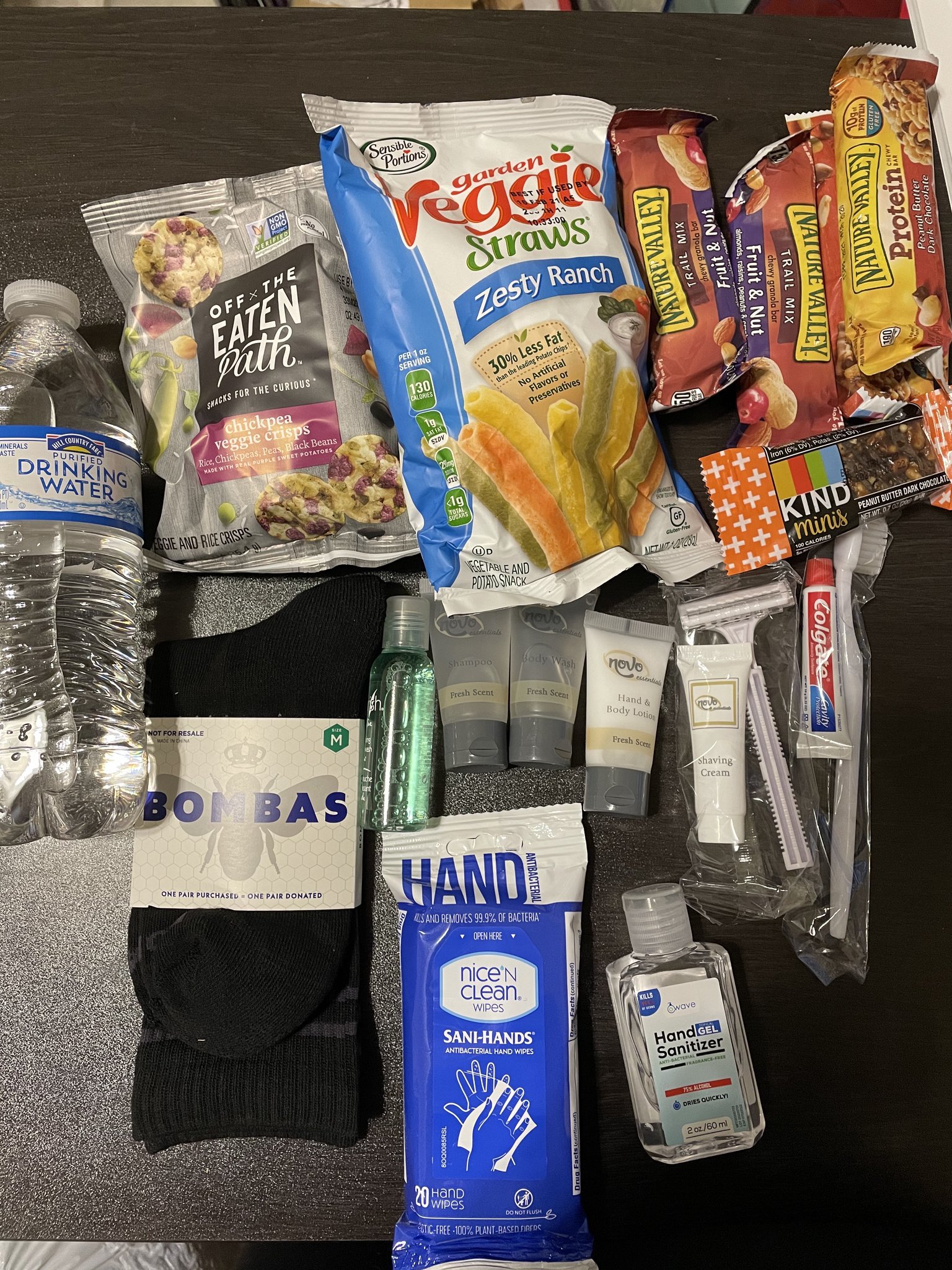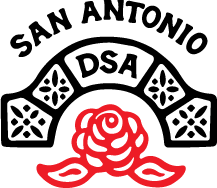Houseless Mutual Aid Program
Our Mutual Aid Committee started our Houseless Mutual Aid Program in October 2020. Since then, the committee, along with volunteers, has held weekly distributions in downtown area near the Austin St./I-35 underpass. We haven’t missed a weekend since the end of 2021!
This group has come to be called San Antonio Collective Care. This reflects that not everyone in SACC is a member of San Antonio DSA—but in practice, SADSA members hold it down and make up the majority of the active group. Our group’s goals can be found below, as well as ways to contribute!
Interested in getting involved? JOIN IN! Come to one of our distributions & debriefs to learn more! They happen every week on Sunday. You can find them on our calendar.
Or follow us @sacollectivecare on Instagram!
A program of this size requires a lot of resources. Average monthly costs can range from $500 - $800, and we rely purely on donations from the community. If you would like to help us purchase items, check out our Amazon Wishlist or send a donation to @SanAntonioDSA via Venmo, CashApp, or PayPal. Additionally, we are always accepting donations such as new underwear and socks, tents, sleeping bags, radical literature, NARCAN, and other harm reduction supplies.
Goals & Long Term Strategy
Our goal is to build relationships of trust with our unhoused neighbors. We want to learn with them and help them organize to demand both humane treatment from the city and more affordable housing.
By building relationships between housed and unhoused residents, we hope to organize a class conscious movement that fights to end our shared problem of structural housing insecurity by acting along principles of mutual aid and the revolutionary love of working together to meet each other’s needs, and by prioritizing our actions according to a materialist analysis of how to achieve lasting structural advancements for future generations to build on.
In practice, we think this can be done by:
Supporting the capacity of unhoused folks to organize for themselves.
Offering — not imposing — our analysis and our understanding of effective organizing practices.
Developing solidarity across the working class’ different levels of housing insecurity.
Fostering a learning environment for new and old organizers.
Staying comfortably within our capacity as individuals and as a group—taking on new tasks one-at-a-time, and balancing our efforts between external output and internal functioning.
Cultivating internal democratic practices which are vibrant, inclusive, informed by an intersectional analysis, reflective, deliberative, collaborative, and fulfilling.
Practicing transformative justice methods of accountability.
We can’t win this alone, so by being a space to learn and by setting a good example, we hope to help the broader ecology of the organized working class.
